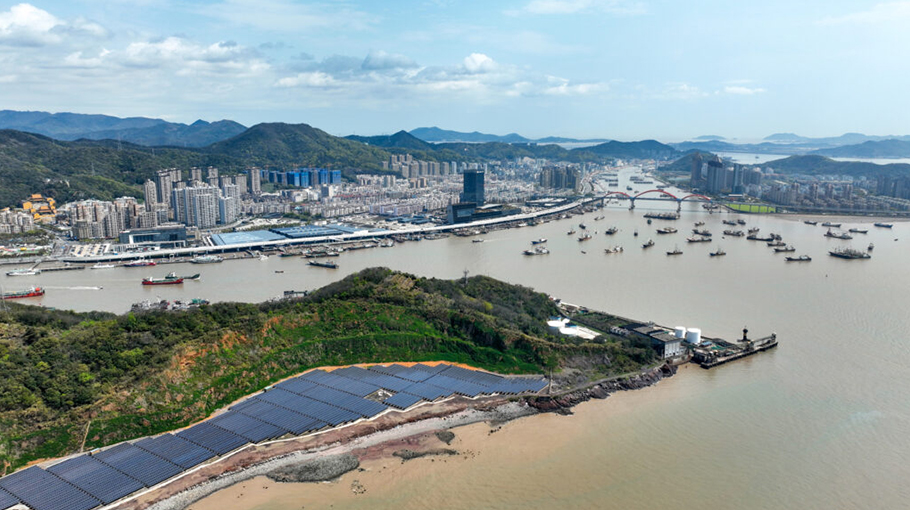Understanding China’s changing climate change rhetoric

China, under President Xi Jinping, has demonstrated a critical shift in its rhetoric on climate change. Unlike his predecessors, who emphasised climate equity and China’s identity as a developing country, Xi’s rhetoric constructs China as a global climate change leader. Despite China’s self-positioning, its ambivalence about carbon reduction actions hinders the effectiveness of this international identity construction. But ambitious rhetoric serves as domestic propaganda.
For a long time, China approached climate change from the perspective of climate equity to justify its limited obligations, defining itself as the largest developing country. Leaders stressed that it was unfair for China to undertake similar obligations to developed countries, as they were the innocent victims of significant historical carbon emissions from said developed countries.
Even after becoming the largest greenhouse gas emitter and the second largest economy in the first decade of the 2000s, China’s leaders still employed climate equity as a rationale to stick to its unnegotiable voluntary commitment. During the Copenhagen Conference, China adamantly refused to be bound by any extra international obligations. Before Xi, China firmly rejected the role of an international climate leader and advocated for developed countries to bear the leadership, as well as the costs, of a cooperative solution.
When Xi assumed power in 2012, China showed notable interest and willingness to engage in global governance, particularly regarding climate change. Since his first visit abroad as president, Xi has consistently emphasised that ‘China would proactively undertake more international responsibilities’. This commitment was quickly followed by the Belt and Road Initiative, as well as the Global Development Initiative, Global Security Initiative and Global Civilization Initiative.
Framing climate change as a global threat, Xi called for international cooperation and promised to ‘make new contributions’, showing China’s willingness to participate in global climate responses. At the Paris Conference, he emphasised that China has always been ‘an active participant’ in climate governance and has ‘the sincerity and determination’ to increase its contributions. To enhance the image of a responsible power, in September 2015 he announced a 20 billion yuan (US$2.8 billion) South–South climate change cooperation fund.
The United States’ withdrawal from the Paris Agreement in 2017 gave China an opportunity to cast itself as a leader and responsible player in climate governance. Xi highlighted that China would steadily support the Paris Agreement, promised that China aimed to ‘peak carbon emissions by 2030’ and ‘achieve carbon neutrality before 2060’, and declared an end to the construction of new coal power projects overseas. While these ambitious pledges have contributed to constructing a positive image for China, they have concurrently elevated international expectations and observations.
But Beijing’s ambitious rhetoric has not fully translated into international recognition. China is still ambivalent about phasing out fossil fuels, and this ambivalence showcases its greater concerns around energy security. After experiencing severe energy shortages in recent years, in 2022 Xi said China’s efforts to peak and zero out carbon emissions must be prudent, and ‘China won’t stop burning fossil fuels until it’s confident that clean energy can reliably replace them’.
While there has been a decrease in the share of coal, a primary energy source relied upon for decades, from 63.8 per cent in 2015 to 56.2 per cent in 2022, both domestic coal production and coal imports have continued to rise. Additionally, China experienced a record high in crude oil imports in 2023, the first year of recovery from the pandemic. Considering its ambivalence towards fossil fuels, doubts emerge regarding China’s ability to fulfil its climate commitments.
China’s evolving rhetoric not only aims to communicate its aspirations to the world but also targets the domestic audience. It plays a crucial role in internal identity building by conveying the message that the government is actively involved in responsible climate action, while also enhancing the legitimacy of the Communist Party. In his report to the National Party Congress in 2017, Xi suggested that if Mao Zedong made China independent and Deng Xiaoping made it prosperous, he would make it strong again.
Xi’s definition of ‘strong’ is not confined to a single aspect, but encompasses a comprehensive China Dream, including a strong China in global governance. Xi aimed to distinguish Chinese leadership from the traditional Western paradigms. In the 20th Party’s Congress, he concluded that ‘China has made great achievements in the past ten years in ecological civilisation’ and will steadily contribute as a responsible major power.
Catering to the revived nationalism, the domestic audience widely believes that China is one of the leading forces in climate governance. For instance, civil societies in China are shifting their focus from domestic climate change policy advocacy to highlighting China’s climate action contributions on the international stage. Some NGOs, like Global Environmental Institute, also engage in international cooperation, actively promoting China’s experience to other developing countries.
While China, has adopted proactive rhetoric positioning itself as a global climate governance leader, the effectiveness of this international identity construction is hampered by discrepancies between rhetoric and action. Still, growing domestic recognition suggests that the changing narratives serve a more pivotal function — as domestic propaganda. It remains to be seen how the international community and the domestic audience will perceive and respond to China’s evolving narrative.
Gu Bin Joyce is studying International Relations at the S Rajaratnam School of International Studies (RSIS), Nanyang Technological University (NTU), Singapore.
CounterPunch




